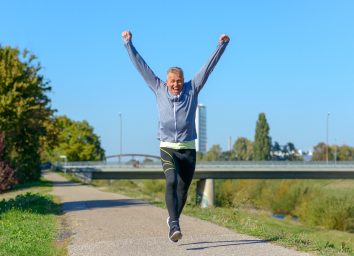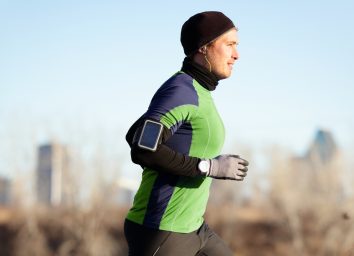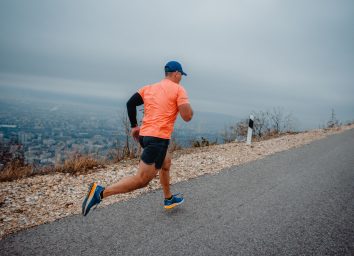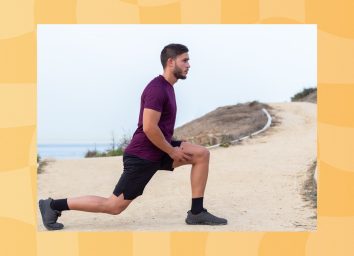The Benefits Of Barefoot Running Will Make It Your New Favorite Cardio Workout
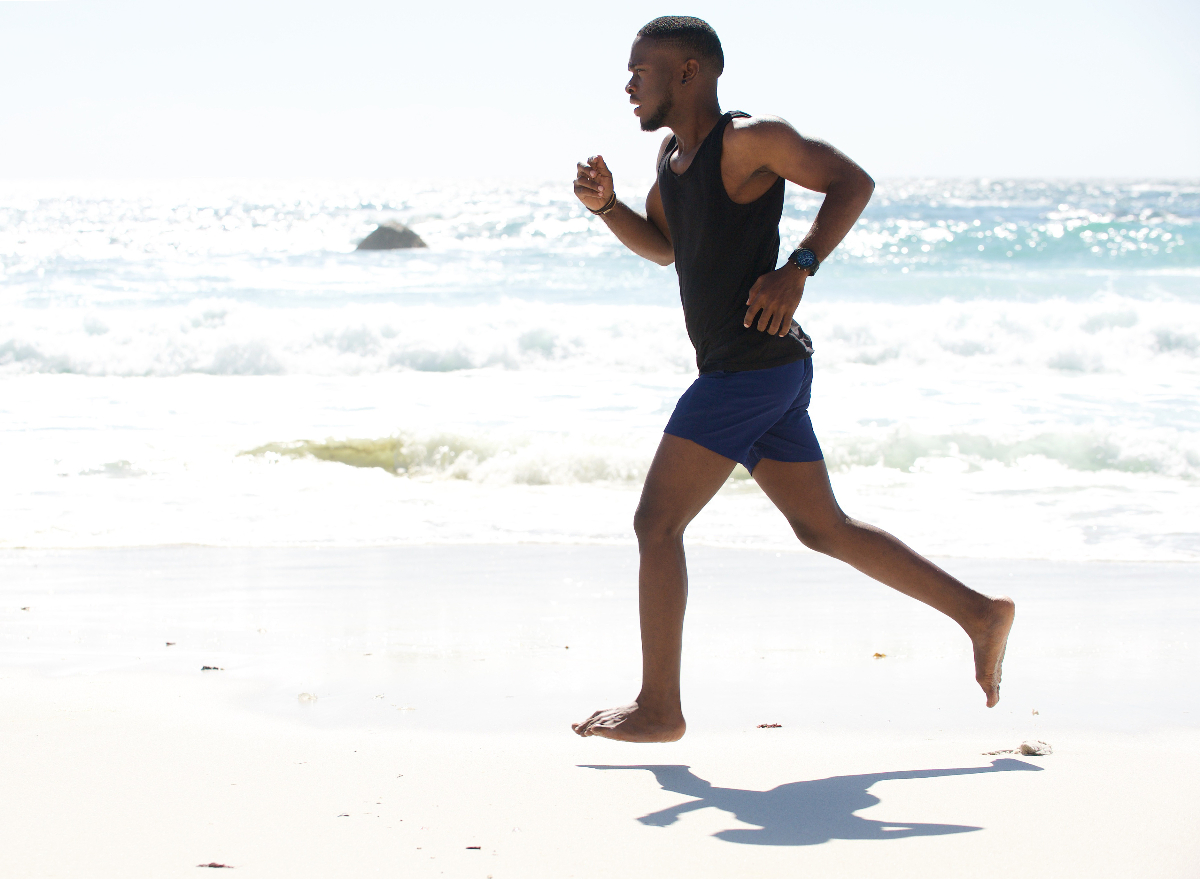
Running barefoot in the sand towards the love of your life with the sun setting in the background isn't just the kind of move made in a romance novel. Tons of running enthusiasts are kicking off their sneaks and letting their feet breathe freely because they love barefoot running as a fun and efficient method to burn more calories and have happy feet. If you're curious about the benefits of barefoot running, we have the details.
We spoke with Tim Liu, C.S.C.S., online fitness and nutrition coach about the benefits of barefoot running and tips on how to do it properly. Liu tells us that barefoot running enhances the strength of both your calves and feet. Ditching the sneaks for a run on the beach can also help you torch more calories because your body has to put in more effort, he explains. He continues to tell us, "You may be able to fix your flat feet and get your arch back because you won't be restricted in your footwear."
Read on to learn more, and next, check out The 6 Best Exercises for Strong and Toned Arms in 2022, Trainer Says.
Barefoot running is claimed to be a solid way to better your performance
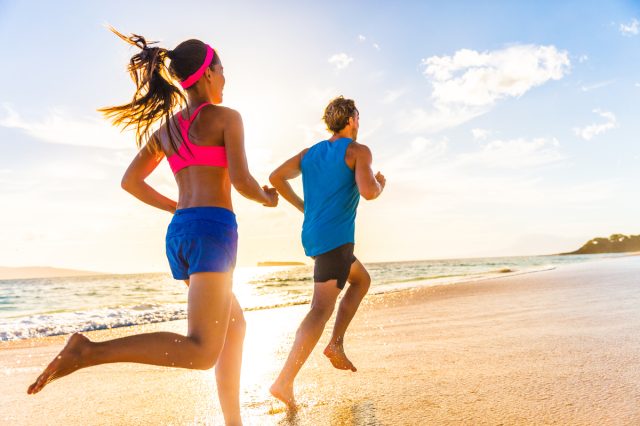
In an article published by Sports Health, running without shoes has become very popular for many reasons. It's claimed to be a great way to reduce your risk of injuries, better your performance, and improve your running efficiency when compared to wearing running sneakers. The journal states that modern-day running shoes could have a negative impact on the function of your feet, even though they do have stabilizing features and extra cushion. Therefore, the shoes people wear today to run in certainly have skeptics out there.
Related: The Best Ways To Increase Your Visceral Fat Burn While Walking, Trainer Says
You'll torch more calories and embrace a "more efficient" running pattern
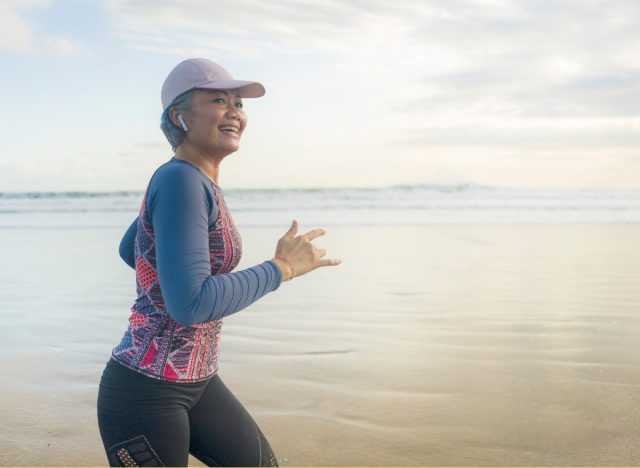
According to Cleveland Clinic, many runners believe that running barefoot reduces the risk of related injuries, and it's all because of the technique. Sports physical therapist Michael Bogden, PT, DPT, SCS, FAAOMPT, explains via Cleveland Clinic, "Barefoot running is going to be tougher and more challenging, so there's a good chance you'll burn more calories doing it." Bodgen also says, "For most people, you're probably going to have better mechanics running barefoot. It encourages a running pattern that is more efficient … Overall, it's a more natural running pattern that reduces loading to your joints."
The health benefits make complete sense. When you run barefoot, each stride you take tends to be shorter and also closer to the next. Each landing will be made on the ball of your foot, rather than on your heel—hence an ultra-efficient movement. Running barefoot will also generate an overall centered position with each foot/ground contact, as your feet will be in line with your torso's "center of gravity." This will enable your knee to bend more, which in turn will cause your joints to take in every pounce in a more beneficial way (via Cleveland Clinic).
Related: "Retro Running" Will Be Your New Favorite Way To Run
It strengthens your foot muscles
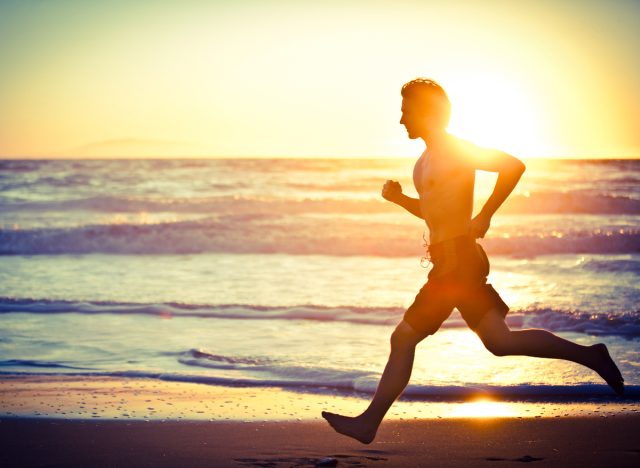
This running technique can also be favorable for the muscles in your feet—especially if you don't have much of an arch. "Barefoot running strengthens the small muscles of the foot that help you grip, arch, and drive off with each of your strikes. In your first few runs, you might notice some muscle soreness there which will let you know that you activated those muscles," Liu explains.
Bogden adds (via Cleveland Clinic), "If you're always wearing supportive shoes, you're not adding muscular strength in your feet to support bones that aren't just naturally tight in their structure." He also warns, "Bad running technique leads to less efficient firing patterns of the muscles in your lower leg, which can contribute to overuse injuries such as plantar fasciitis."
Clearly, if running barefoot, you need to be careful so as not to land on anything that can cause injury. A freshly combed beach is a perfect choice! It's worth a try to switch things up—especially with summer around the corner. Bogden's advice? "Most runners would benefit from doing some training barefoot. It can be a great tool for variety."
Taking care of your feet before, during, and after barefoot running
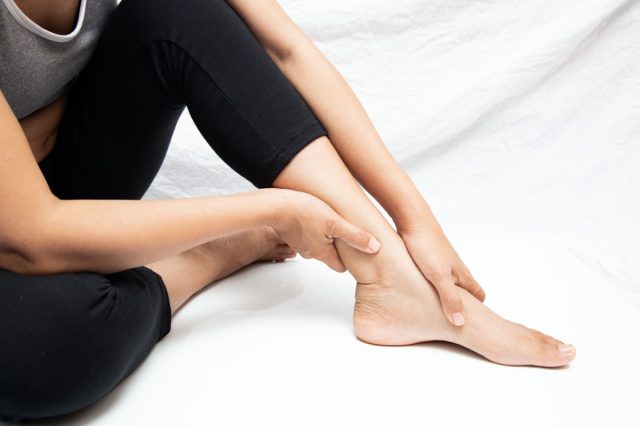
Liu provides some tips to kick off your barefoot running journey. He cautions to not overdo it during your first few runs. "You want to gradually build up volume and muscle endurance of the foot," he explains. "You also want to run on a soft surface so that it's not hard on your joints." It's critical to choose a soft surface such as soft dirt or a sandy beach, and push off the balls of your feet rather than your heels.
And don't forget about proper foot care. Liu suggests stretching your calves before and after your run, moisturizing your feet, and completely extending your toes to ensure you're getting a full range of motion. Aside from that, kick off your sneakers, and go!

